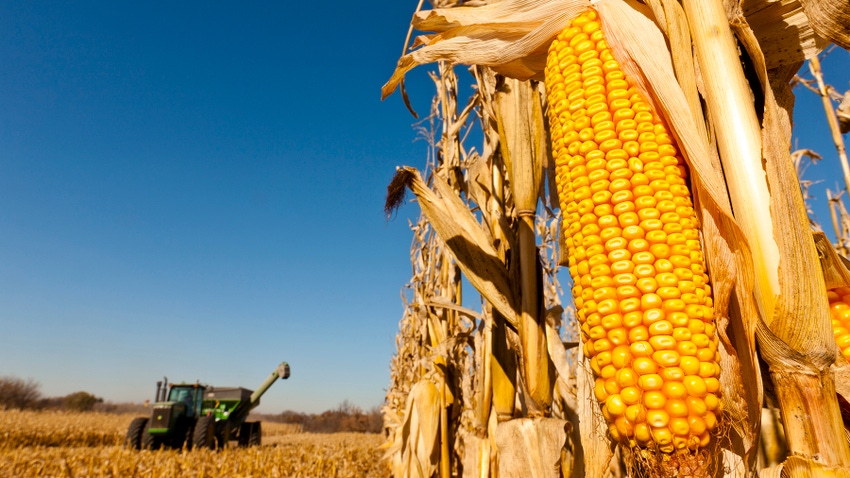
The January 2024 Farm Futures grower survey found 2023 corn yields performed better than previous USDA forecasts would suggest, which could have bearish implications for corn prices if USDA’s corn yield estimates follow a similar trend in Friday’s report series.
The survey, conducted between December 18 – January 2 via email, collected responses from 853 farmers across the country. Farmer responses indicated 2023 U.S. national corn yields are likely to rise nearly 2% from a year ago to 176.1 bushels per acre. That figure will continue to be the fourth largest yield in U.S. history.
If USDA holds its current 2023 harvested acreage steady at 87.1 million acres, that would grow the 2023 U.S. corn harvest to 15.339 billion bushels, topping the previous 2023 crop estimate as the largest corn crop on record.
That means an already full corn pipeline in the U.S. will remain full into the 2024 harvest seasons. Using current USDA corn usage targets for the 2023/24, the Farm Futures survey data suggest that the stocks-to-use ratio for the marketing year will widen to 15.6% from current levels projected at 14.7%.
Unless usage rates increase in Friday’s Quarterly Grain Stocks report, a higher corn yield figure for 2023 U.S. corn should have farmers preparing to brace for lower corn prices that will persist throughout the remainder of the 2023/24 marketing year.
Optimism for soybeans ahead?
The U.S. farmers in the Farm Futures January 2024 survey indicated 2023 soybean yields will likely dip 2% below 2022 levels to 48.6 bpa in Friday’s Crop Production report from USDA. Timely rains across the Heartland in late July 2023 and early August 2023 were too early for soybean yield potential last summer, especially after the crop endured heat stress early in its growing season.
As a result, the 2023 U.S. soybean crop could fall to 4.026 billion bushels if the Farm Futures surveyed soybean yield of 48.6 bushels per acre is realized. That only slightly smaller from the current USDA forecasts for 2023 soybean production but it will remain the seventh largest harvest and yield for U.S. soybeans on record.
The pricing implications of a smaller soybean yield are the exact opposite of those of a larger corn crop. Since fewer soybean acres were planted in 2023, the crop was always going to be on the smaller side. But spring drought and August heat thwarted hopes for trendline yields in 2023, further tightening already constrained ending stocks.
If USDA’s current soybean usage rates of 4.181 billion bushels are left unchanged in Friday’s reports, the STU for 2023/24 soybeans will shrink to 3.4% from the prior year’s level of 6.2%. If that happens, it would be the second tightest ending stocks level for soybeans in history, second only to 2013’s 2.6%.
Timely rains favored corn crops in 2023 while soybean crops lost out on the same yield potential, as evidenced by Farm Futures readers. Friday’s report will provide the final read on 2023 corn and soybean yields.
Pre-report trade estimates offer little yield variability for where the market thinks USDA could revise 2023 corn and soybean yields. That means corn yields on the high end of the 174.0 – 176.5 bpa trade range and soybean yields on the lower end of the 49.5 – 50.4 bpa range could trigger significant price volatility during Friday’s trading session.
Read more about:
YieldsAbout the Author(s)
You May Also Like






